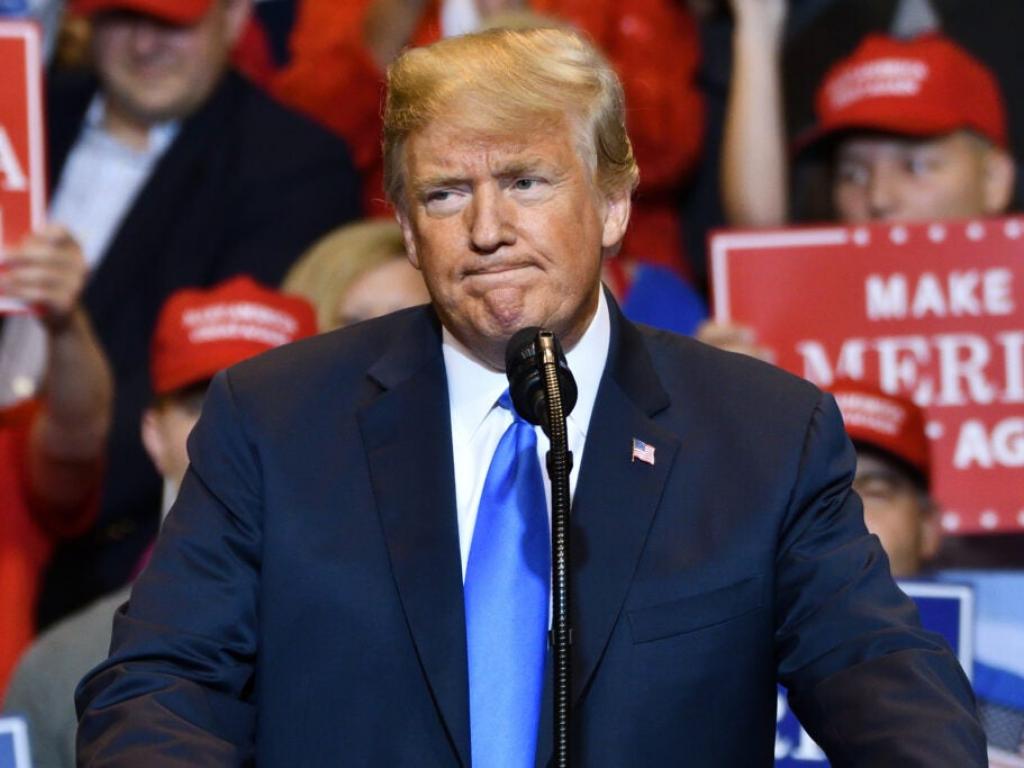Donald Trump Fueled Bitcoin's Rise Beyond $100,000 — Can BTC Survive His 2028 Exit?
Author: Parshwa Turakhiya | November 10, 2025 01:23pm
Bitcoin (CRYPTO: BTC) may face its biggest political stress test yet in 2028 when President Donald Trump leaves office and the pro-crypto administration that empowered the industry comes to an end.
Trump's Political Premium Drives Crypto Confidence
Crypto's identity has become deeply connected to Trump's leadership.
Polls in 2025 showed that 73% of U.S. crypto investors backed his digital asset policies, underscoring how much sentiment now hinges on his political survival.
Trump cannot remain in office after 2028, and when his term ends, the industry loses the regulatory champion driving today's momentum.
Institutional and Retail Investors React Differently
Institutional investors have built exposure under expectations of regulatory clarity.
They anticipate a cooperative SEC, bank access for custody services, and federal backing for stablecoins.
When Trump exits, those expectations vanish.
Funds and asset managers may pause inflows until the next administration signals its approach.
For example, after Trump's 2024 win, BlackRock (NYSE:BLK) and Fidelity's Bitcoin ETFs drew over $2 billion in inflows, but when legal uncertainty surfaced in late 2025, ETF outflows topped $180 million in a day.
Strategy Inc. (NASDAQ:MSTR), the largest public Bitcoin holder, also mirrors those cycles — its stock typically rallies on pro-crypto policy news and weakens when regulatory risk rises.
Retail investors are likely to react faster and more emotionally.
Trump’s exit could trigger panic selling and short-term volatility as confidence fades.
Yet a segment of the base could react in the opposite way — viewing Trump's exit as proof that Bitcoin, not politics, represents true financial freedom.
Policy Direction Could Swing Back Toward Enforcement
Under Trump leadership, agencies adopted a cooperative tone toward digital assets, opening communication channels with exchanges and easing compliance pressure.
Without him, that balance could quickly tilt back toward enforcement-led oversight.
The SEC could revert to a strict interpretation of securities laws, labeling more tokens as unregistered assets and resuming litigation against major exchanges.
Stablecoin rules, once shaped by the GENIUS Act, might be rewritten to require issuers to operate under banking supervision.
Trump's block on a CBDC could also be lifted, reigniting debate over a digital dollar.
In banking, regulators might reintroduce caution, discouraging lenders from offering crypto custody or services to exchanges.
A new administration could appoint a tougher SEC chair in the mold of Gary Gensler, restoring the pre-2024 regulatory climate.
Such a shift would likely slow institutional participation and temper the expansion of U.S.-based token projects.
Legislative Momentum Slows Without Trump's Push
Trump's presence in Washington helped push through the first federal stablecoin law.
Without him, pro-crypto legislation could lose traction, while oversight-focused proposals gain ground.
Senator Elizabeth Warren (D-Mass.) and other skeptics could return to prominence.
Still, Democrats aware of crypto's growing influence among young and minority voters may adjust their tone to avoid alienating an emerging voting bloc.
Bitcoin Faces Short-Term Volatility But Long-Term Strength
Bitcoin's history shows how quickly political events influence price.
It surged above $100,000 after Trump's 2024 victory and dipped around 2% in 2025 during uncertainty tied to his trade cases.
When Trump exits in 2028, the pattern could repeat: a short-term sell-off, followed by consolidation as investors reassess regulation and macro conditions.
Once that adjustment ends, Bitcoin's long-term drivers—halving cycles, global liquidity, and institutional adoption—should take over again.
Crypto's Post-Trump Maturity
Even without Trump, Bitcoin's foundation remains independent of politics.
His policies accelerated adoption, but the technology's core strength lies in decentralization.
The next phase may bring less hype and more structural maturity, as markets refocus on fundamentals rather than campaign headlines.
Read Next:
Image: Shutterstock
Posted In: $BTC BLK MSTR





